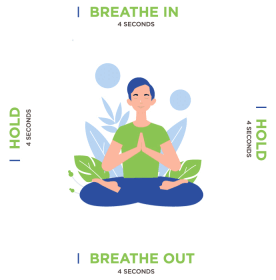4
Total Lung Capacity
Last Updated: November 3, 2024

Table of Contents
Healthy lungs mean a healthy life. Today, more than ever, we should be focusing on ensuring healthy lungs. Want to know how you can do it?
Key Takeaways
- Definition: Lung capacity refers to the total amount of air your lungs can hold.
- Factors: Age, gender, fitness level, and health conditions can affect lung capacity.
- Improvement: Breathing exercises, regular physical activity, and yoga can help improve lung capacity.
- Benefits: Increased lung capacity improves oxygen intake, endurance, and overall respiratory health.
- Testing: Lung capacity can be measured through tests like spirometry.
- Health Impact: Maintaining lung capacity is important for overall health, especially in managing respiratory conditions.
Improve Your Health and Lung Capacity

How we breathe is not something many of us reflect upon, at least not daily. Our breathing has such a huge impact on our overall well-being that more and more are starting to pay attention. Especially during times like these where we are wearing masks, quality breathing becomes even more important.
Obstructed breath can and will have an impact on your health in the long run. Therefore, we recommend you do some daily breathing exercises. Not only to improve your total lung capacity but also your health. It will have a positive effect on your well-being and help reduce stress, anxiety, sleep better. When you breathe better, you’re also likely to become more mindful of your mind/body connection - another included benefit!
Age Affects Lung Capacity
From our mid-20s and forward, our lung capacity will slowly start to decline, and this will only get worse the older we get. Medical conditions such as asthma or COPD (chronic obstructive pulmonary disease) could speed up this process.
Luckily, there are breathing techniques out there that can help you. Not only to breathe better but also to increase your total lung capacity if that is your main objective. The good thing here is that it does not matter if you are 20 years old or 60 years old; it is never too late to start practicing any of these techniques. Even better, they are not difficult, as anyone can do it and you will see results fairly swiftly.
How to Increase Lung Capacity or your Tidal Volume
Breathing methods that can help you improve your lung capacity include  diaphragmatic breathing and pursed-lip breathing. Other breathing techniques available are 4-7-8 breathing and square breathing. Take a look at the box breathing benefits. There you will see the additional benefits that these breathing exercises provide. All of these will improve your total tidal volume and lung function, with bonus benefits being reduced stress, anxiety, and better sleep.
diaphragmatic breathing and pursed-lip breathing. Other breathing techniques available are 4-7-8 breathing and square breathing. Take a look at the box breathing benefits. There you will see the additional benefits that these breathing exercises provide. All of these will improve your total tidal volume and lung function, with bonus benefits being reduced stress, anxiety, and better sleep.
Tidal volume is the volume of each breath measured during an entire respiratory cycle. A person’s tidal volume is calculated based on height and weight.
Besides tidal capacity, when referring to lung volume and capacity we also have what is called vital capacity. This refers to the total amount of air a person can exhale from their lungs in one breath. If you put force behind the exhalation, you are creating what is called forced vital capacity, also known as FVC. To measure this and tidal volume experts use a test called spirometry which measures the air volume transferred. The same tool is used to diagnose conditions as asthma and COPD.
Practicing any of these techniques over a period will see you improve your total lung capacity, and with it, your ability to hold your breath for a longer period when needed. Using these techniques comes with additional benefits besides improving your ability to hold your breath; in addition to the positive effects mention above, they will also help improve your lung function.
We at Anahana Wellness have both the knowledge and experience in helping you achieve this. We make it simple - reach out to us to discuss how you can start breathing and feeling better!
Healthy Lungs, Healthy Life
Besides using breathing techniques to improve your overall well-being, it is important to keep your lungs as healthy as possible. That means avoiding things such as smoking or vaping. If possible, distance yourself from second-hand smoking or toxic environments without protective gear. Put it as a routine to get some exercise into your weekly schedule. This could be doing yoga, going out for a run, or forest bathing.
The objective is to get your body moving and push air through the lungs. If possible, avoid crowds or close contact with different people, especially during flu or cold season. Make sure to keep up good oral hygiene, along with washing your hands when needed. Schedule regular check-ups, to ensure you stay on top of things. Healthy lungs will without a doubt give you a healthier life!
Lung Capacity: Frequently Asked Questions
Can you improve your lung capacity?
Yes, and it is fairly easy. Using some deep breathing techniques will allow you to improve it in a fairly short period of time. It is also healthy for you as you will be able to circulate more air through your lungs allowing your blood to become more oxygenated.
What exercises will help me improve my lung capacity?
In a relaxed state, certain deep breathing exercises will allow you to improve your total lung capacity. In short, you inhale through your nose and exhale slowly through your mouth. Repeat this process for a period of time, and do it on a daily basis.
What makes lung capacity so important?
Studies have shown a direct correlation between lung capacity, health, and longevity. It is a tool that should be used in a general health assessment.
Does walking benefit your lung capacity?
Yes, it does! A 30-minute brisk walk has proven to have a positive effect on lung capacity. It has also been shown to strengthen your lungs. With that, you will breathe easier, stay healthier, and hopefully live longer.
References
https://www.cdc.gov/copd/index.html
Disclaimer
The contents of this article are provided for informational purposes only and are not intended to substitute for professional medical advice, diagnosis, or treatment. It is always recommended to consult with a qualified healthcare provider before making any health-related changes or if you have any questions or concerns about your health. Anahana is not liable for any errors, omissions, or consequences that may occur from using the information provided.
Are you looking to invest in your health? Want to improve the way you breathe, feel and your overall health? Reach out to us and allow us to help you reach your goals.

Dr. Darlene Buan-Basit is a highly experienced licensed Chiropractor and Pilates instructor with expertise in many techniques, including Medical Acupuncture, Traditional Chinese Medicine, and Advanced Massage Techniques.
